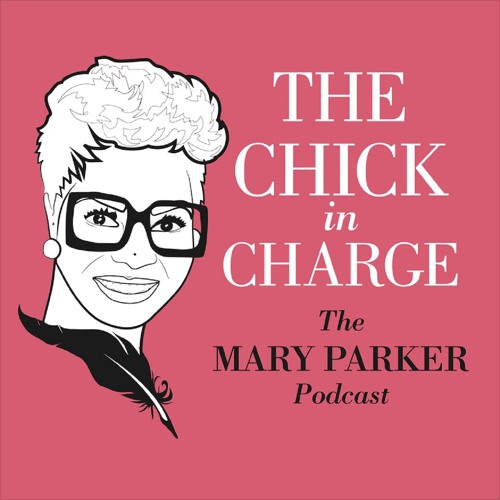


The Chick in Charge with Vicki Hamilton – Sowing the Seeds of an IT Career
Check out the podcast HERE.

Battle of the Fears: Interviewing vs. Public Speaking
- Thoroughly review the details associated with the position you are interviewing for. Look at the responsibilities for the role
- Take each job responsibility and talk to yourself about how you have done that before or have knowledge about it. Add examples of results that you have achieved.
- Look at each requirement listed. Really take the time to relate your experience to what is being asked and the length of time that you did it, as you want to show the breadth and depth of your experience. Keep telling that story to yourself. By the time you go into an interview, what are you really doing? You are just telling your story. Talking about yourself and sharing it with someone else. As I mentioned, no one knows you better than you.
- First, remember, you know your subject matter. If you are being asked to talk in front of others, it is because you have something to offer and considered to be very knowledgeable about the subject matter.
- You can structure your content to flow like you are telling a story here as well. Talk about the story to others in groups of 2-3 to begin the process. You can then practice in front of larger groups. I understand that even though you know the information, it is so scary when you actually get on the stage. It is normal to be a bit nervous.
- Find a person in each area of the audience – left, right and center to focus on. This makes it look like you are looking around the crowd when you turn your head from side to side and look up. . Focus on the top of individual’s heads or something on the table that makes you comfortable.
- I know you’ve heard this one before and it may seem silly, but it works. Imagine everyone in the audience is wearing their underwear. Yes, I said underwear. I know you are probably saying, “why would I do that”. Well, anything that can make you smile or laugh will reduce the anxiety and stress when speaking. As you can see, whether you are interviewing or doing public speaking, it is really about telling a story. Tell your story and let others gain from your knowledge and experiences. I hope that this information is of value to you and helps on your journey. If you are seeking a career mentor or have questions that you would like me to address, please do not hesitate to contact me at vicki@vickiwrighthamilton.com.

Defining Career Paths
What are your passions? What do you love to do? What would you do for FREE?
Have you ever taken the time to reflect and figure it out?
It has been my experience that before you can ever “define” what a career looks like for you, one must take the time for introspective reflection. If you don’t journal or write, I would highly recommend that you give it a try. The power of the pen can truly help you to visualize your career goals. We often hear, “follow your passion…do what you are naturally good at.” The challenge is that we all may have many talents and varying interests. – As you reflect on your passions, ensure to consider the things that must exist around you as well. See our environment is very important and that allows us to determine the right cultural fit to work within to achieve our best results… Believe it or not, your career happiness has a monumental effect on your life overall. We all know, “when we are not happy, we look for a way to get out or become very disinterested”.
Considering a new direction in your career, here is some information that will help.
How do I know what I am “passionate about or good at”?
Passion comes from the heart and desire. You don’t have to think about it, you just love doing it. You could do it every day and NOT get paid for it.
Once I have defined my career path, how can I select the right opportunities?
During your career, you will gain skills and knowledge along the way. It is important to evaluate your strengths and opportunities continuously. This will help to set the tone of additional requirements as you move along your career journey. There may be times when you have to say, “what are the additional skills that I need in my tool box, in order to be prepared for the next opportunity on my career journey. This may mean that you have to make some choices. Below are a few choices that may need to be considered:
- Take a side step – Often a lateral move is necessary, to help prepare for your ultimate career goal. This shift may or may not be with your current employer. If you are having challenges with your current employer, it may be time to make a move. Other times, it is an “investment in yourself”, you must completely understand the purpose and results that you are looking to gain.
- Take a promotion – It is important to consider that just because you are offered a promotion, doesn’t necessarily mean you should take it. If you are not happy, passionate or see a “fit in the culture”, you should really think about it. Don’t chase the dollar bill. Chasing money can often lead to misery, if you are doing work that you do not enjoy. Believe it or not, you end up working much harder on work that isn’t fun and doesn’t excite you. Please make sure that a promotion would give you either additional exposure, more experience, an increased span of control or combination thereof.
- Change Industries – There will be times that it is necessary to switch things up a bit. Perhaps the industry or market you are working within is experiencing challenges, such as new talents/skills, market pressures or unforeseen competition. After considering these factors, you may not be interested in staying in this area and moving forward. If that is the case explore other opportunities. Just remember to consider skills can be transferable and you do not always have to start at the bottom.
- Talk to others and network with current team members of potential new employers. You should gain as many insights as possible to understand the impact of this next opportunity from current employers and contractors. This will help you gain further insights of what to expect.
I hope that this information is of value to you and helps you on your career journey. If you are seeking coaching or have questions that you would like me to address, please do not hesitate to contact me at vicki@vickiwrighthamilton.com

Consulting in Corporate America, Part II: From Internal Consultant to Employee
- Corporate Culture: It is important that you assess the culture of the organization that you will serve prior to coming on-board as an employee. Serving as a consultant provides insight into the inner workings of the organization. This assessment will help you determine which characteristics drive projects in that organization. For instance, is this an organization where the culture seems to be very political, fast-paced, slow, authoritative, etc. Accurately making this assessment while help you to understand how quickly or slowly decisions will be executed.
- Collaborating with Colleagues: As a new employee, you now have the benefit of having colleagues that have the business acumen to help move initiatives forward. While these keen business skills can be a huge asset. It is important to remember that everyone doesn’t come from the world of consulting so the processes by which colleagues execute deliverables may vary. It is very important to focus on building relationships with your colleagues and to learn each team member’s core strengths. These relationships will prove valuable during execution, and understanding your colleagues’ strengths will ensure that everyone is working on deliverables that meet their skill set.

Coaching Success: Melissa Koehler
For over 20 years I have had the honor of mentoring dozens of incredible men and women. Check out this awesome article featuring my amazing mentee Melissa Koehler, Senior Director of Technology Portfolio Management & Implementation for Turner/CNN Digital: How a Working Mom Learned to Stop Acting Like the Men Around Her in the Tech Industry.
